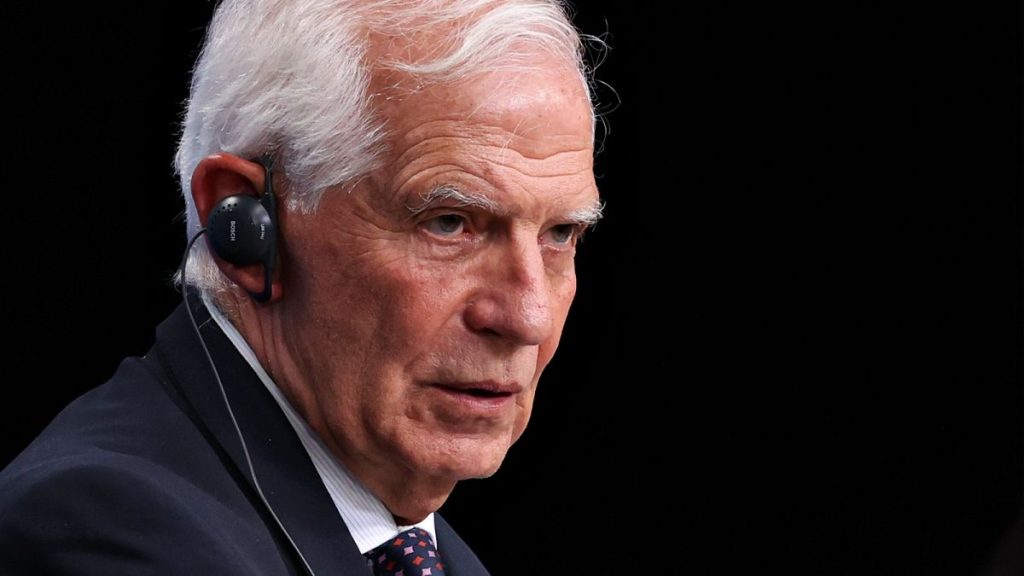The informal meeting of foreign ministers that was originally scheduled to take place in Budapest at the end of August will now be held in Brussels. This decision comes after Josep Borrell delivered a strong criticism against Hungarian Prime Minister Viktor Orbán and his recent visits to Moscow and Beijing. Borrell condemned Orbán’s self-described “peace mission” that saw him meeting with Russian President Vladimir Putin to discuss ways to end the war in Ukraine. He emphasized that Russia is the aggressor in violation of the United Nations Charter, while Ukraine is the victim exercising its right to self-defense. Borrell reminded Hungary, as an EU member state, of its obligation to support the bloc’s foreign policy in a spirit of loyalty and solidarity.
Borrell specifically called out Orbán and his Foreign Minister, Peter Szijjártó, for criticizing the EU’s supplies of weapons and ammunition to Ukraine as a “pro-war policy.” He stressed that it is Putin who is pushing for Ukraine’s partition and other preconditions for talks and ceasefires. The EU’s stance is in support of Ukraine’s defense against Russian aggression. Borrell also expressed disappointment in Hungary’s ongoing veto of EU military assistance for Ukraine, which currently amounts to €6.6 billion. He noted that this situation may discourage other EU member states from providing further military aid to Kyiv. Despite these concerns, Borrell did not use the term “boycott” to describe the decision to move the Gymnich meeting to Brussels, but he highlighted the need for consequences for challenging the EU’s foreign policy.
The move to shift the Gymnich meeting to Brussels adds to the European Commission’s decision to send civil servants rather than Commissioners to informal gatherings in Hungary. While formal EU Council meetings are not affected by the rotating presidency, Borrell’s actions signal a firm response to Orbán’s actions. The Hungarian representative will still be invited to the meeting in Brussels, but Borrell stressed the need to send a symbolic signal against Orbán’s anti-EU rhetoric. He highlighted that the majority of EU member states supported his criticism of Hungary, with the exception of Slovakia, which shares Budapest’s perspective. The High Representative firmly stated that Hungary’s actions breached the EU Treaty’s requirements for active and unreserved support of the bloc’s foreign policy.
Borrell’s condemnation of Orbán’s actions came after days of speculation and mounting concerns within the EU about Hungary’s alignment with Putin’s agenda. The controversial visits to Moscow and Beijing by the Hungarian leader raised questions about Hungary’s commitment to EU values and solidarity. Borrell reiterated that while member states have sovereignty over their foreign policies, they must adhere to the EU Treaties when acting as part of the EU. The lack of cooperation from Hungary, particularly in relation to military aid for Ukraine, was deemed “shameful” by Borrell. He expressed skepticism about Budapest changing its stance on the issue and warned of the potential consequences of withholding reimbursements for military assistance to Kyiv.
Overall, the decision to move the foreign ministers’ meeting from Budapest to Brussels reflects the EU’s firm stance on upholding its foreign policy and values. Borrell’s criticisms of Orbán’s actions underline the importance of unity and solidarity among member states, especially in times of crisis such as the conflict in Ukraine. The ongoing tensions between Hungary and the EU regarding military assistance for Ukraine highlight the challenges of maintaining a cohesive approach to foreign policy within the bloc. As the situation continues to evolve, it remains to be seen whether Hungary will reconsider its position and align more closely with the EU’s stance on supporting Ukraine in its defense against Russian aggression.


